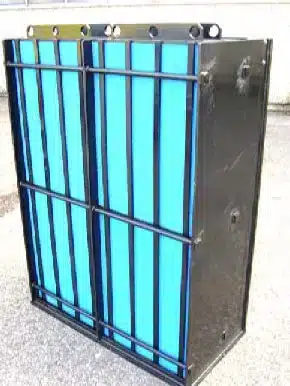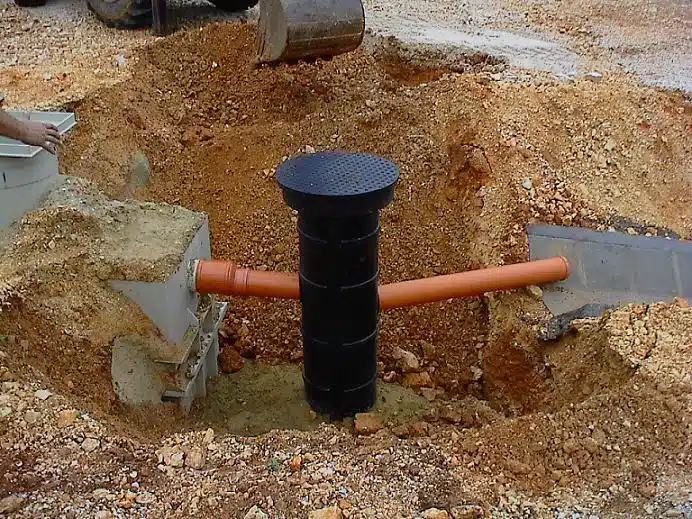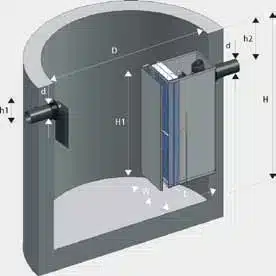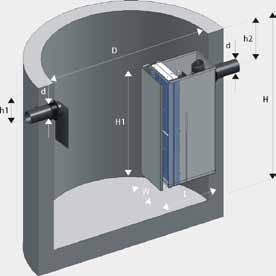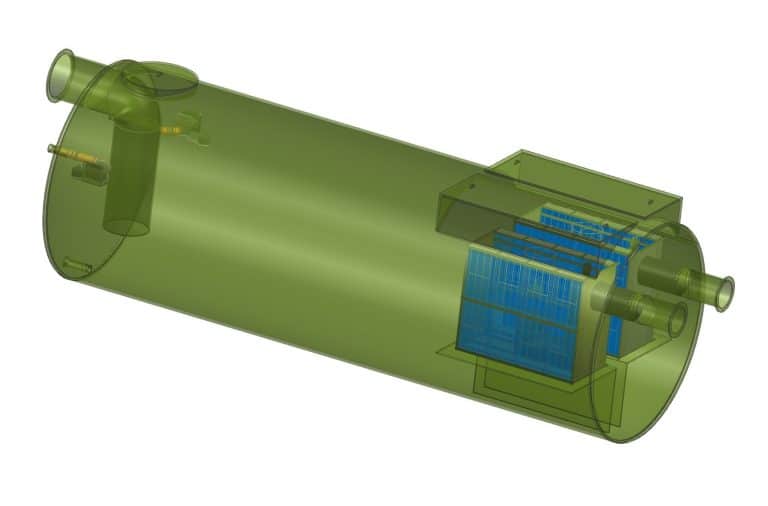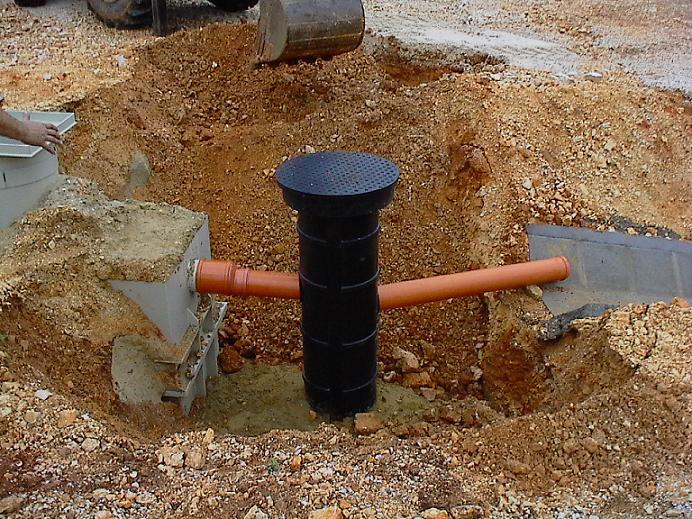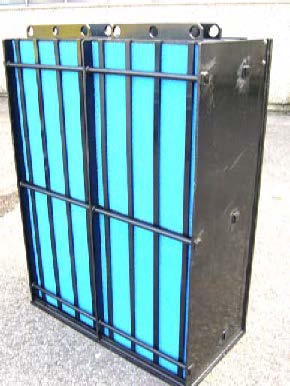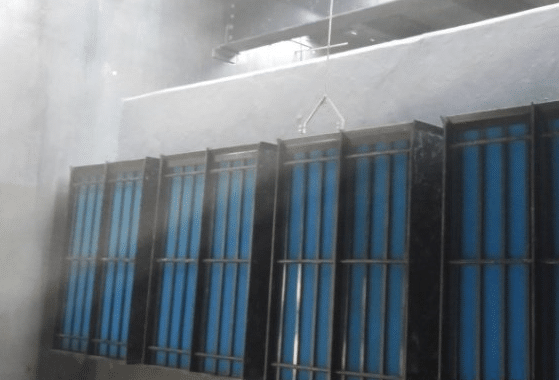Ever wondered what happens to the oil and grease from our roads and industrial sites? In Maine, the answer is under our feet. Maine Below Ground OWS (OWS) are key to protecting our water. They filter out pollutants before they can harm our lakes, rivers, and coastal waters.
Maine’s Department of Environmental Protection has strict water quality rules. This makes Below Ground OWS systems a must for businesses and industries. These separators meet Environmental Protection Agency standards, treating wastewater before it goes back into the environment.
Freytech Inc. is leading the way with top-notch Maine Below Ground OWS solutions. Their systems use advanced technology for a 5 PPM separation efficiency. This is way better than the North American standard of 10 PPM. So, we get cleaner water and a healthier environment for everyone in Maine.
Key Takeaways
- Below Ground OWS systems are vital for Maine’s water quality protection
- They remove oil, grease, and petroleum products from wastewater
- Maine Department of Environmental Protection sets strict water quality standards
- Freytech Inc. offers advanced OWS solutions with 5 PPM separation efficiency
- Proper OWS systems ensure Environmental Protection Agency compliance
Understanding Below Ground Oil Water Separators in Maine
Below Ground OWS are key in Maine for protecting the environment. They make sure oil and water don’t mix, keeping the water clean. Let’s look at how these separators work and why they’re important in Maine.
What are Below Ground OWS?
These systems are underground and separate oil and water. They can be made in different sizes to fit what you need. They cut down on oil and oily stuff in the water before it goes into sewers.
Importance in Maine’s Environmental Protection
Maine values its environment and uses Below Ground OWS to protect it. These systems keep groundwater and surface water safe from pollution. They help keep Maine’s natural areas clean and support monitoring of underground water.
Regulatory Framework and Compliance
Maine has rules for Below Ground OWS that follow EPA and state guidelines. To meet these rules, regular checks on groundwater wells and mapping of underground water are needed. This careful monitoring keeps the water clean and protects Maine’s ecosystems.
The Technology Behind Freytech’s Maine Below Ground OWS
Freytech’s Maine Below Ground Oil Water Separators (OWS) use the latest technology to meet high environmental standards. They use new methods for clean water and efficient oil separation.
Enhanced Coalescing Technology
Enhanced Coalescing Technology is key to Freytech’s OWS. It helps oil droplets come together, making them easier to remove from water. This leads to cleaner water and better separation.
Separation Efficiency: Achieving 5 PPM and Beyond
Freytech’s systems are very efficient at separating oil and water. They can get discharge levels down to 5 parts per million (PPM) or less. This is way better than the North American limit of 10 PPM. Sometimes, they can even get down to 0.1 PPM for very small amounts of oil.
Handling Various Hydrocarbon Types
Freytech’s OWS can handle many types of hydrocarbons. They work with motor oil, diesel, gasoline, and jet fuel. This makes them useful for many industries in Maine, helping companies follow strict environmental rules.
Applications and Benefits of Below Ground OWS in Maine
Below Ground Oil Water Separators (OWS) are key in Maine’s fight against environmental harm. They are used in places that handle petroleum products, car maintenance shops, and sites cleaning up pollution. These systems keep oil and water apart, protecting Maine’s vital water sources.
OWS help track the level of aquifers by keeping oil out of groundwater. This lets us monitor aquifer levels more accurately. It’s vital for managing water resources and keeping them sustainable for the future.
OWS are also crucial for keeping drinking water safe. They stop oil from getting into water sources. This is super important in Maine, where many towns get their drinking water from groundwater.
OWS support hydrogeological surveys too. These surveys tell us about groundwater movement and quality. With less contamination, we get more accurate survey results. This leads to smarter water management choices.
Maine’s industries gain from OWS through better wastewater handling and following EPA and state rules. These systems are a trusted way to clean oil-contaminated water. They help businesses run right while keeping the environment safe.
Maine’s Water Quality Monitoring and Testing Procedures
Maine is serious about keeping its water safe. The state has a strong system to ensure drinking water is safe. This includes regular checks and tests by experts.
State-Certified Laboratory Testing
In Maine, state-certified labs play a big role in monitoring water quality. They use advanced tools to test water samples. They look for harmful substances that could make people sick.
The results help water suppliers make sure tap water is safe to drink.
Contaminant Monitoring
Monitoring contaminants is a key part of Maine’s water safety plan. Labs check for many pollutants like lead, bacteria, and chemicals. If they find high levels of harmful substances, they alert water suppliers quickly.
This fast action helps prevent health risks.
Compliance with Maine Department of Health & Human Services
The Maine Department of Health & Human Services oversees water safety. They set rules for water treatment plants and their workers. The department makes sure all public water suppliers follow strict guidelines.
They also require yearly Water Quality Reports. These reports tell people about what’s in their tap water. This open approach helps build trust between water suppliers and the public.
These separators are crucial in storm water systems. They process runoff to meet the US EPA’s Clean Water Act standards. With effective oily water treatment, facilities protect the environment and dodge big fines.
Conclusion: The Future of Water Protection in Maine
Maine’s water protection future is looking up with better Below Ground Oil Water Separator technology. These improvements, along with strict Environmental Protection Agency rules, help keep the state’s water safe. As industries grow and new environmental issues come up, efficient OWS systems are more important than ever.
The Maine Department of Environmental Protection keeps setting higher standards for water quality. This push for better water leads to new OWS technology that can handle more contaminants. These updates are key to keeping Maine’s water clean.
Working together is crucial for Maine’s water future. Companies like Freytech Inc., state agencies, and local utilities must collaborate. This teamwork ensures safe drinking water and keeps water quality high. By working together, they can face new water challenges and keep Maine’s water clean for the future.

